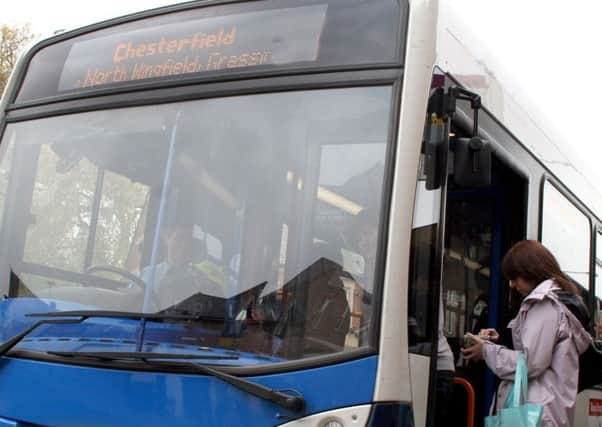LETTER: Bus passengers being used as political pawns


Councillor Williams said: “The proposals are a direct response to the severe financial pressures faced by the county council as a result of nationally–enforced Government cuts” — and that is exactly what they are, a response. One that, in his own words, “will have a very negative impact on peoples’ lives as well as on the economy of nearby towns and villages.”
DCC is proposing a very bizarre demand responsive transport (DRT) scheme of which it does not know average journey times, projected frequency of use or what it would cost per passenger and yet it feels somehow just ten minibuses can provide public transport over an area of 1,000 square miles.
Advertisement
Hide AdAdvertisement
Hide AdIt compares it to Lincolnshire’s CallConnect scheme - Councillor Dean Collins even appeared on BBC East Midlands today to say as much - but Loncolnshire’sr scheme uses 42 minibuses (over 2,600 square miles) IN ADDITION to 151 subsidised conventional bus services, whereas DCC would REPLACE all subsidised bus services with DRT. DCC also thinks its scheme would, from day one, be 60 per cent more efficient than Lincolnshire’s which has been running for 15 years. It just wouldn’t work. DRT has been tried in Derbyshire with two small-scale schemes known as the Hilcote Connect and Higham Connect. Both spectacularly failed in my view, with subsidies of up to £24 per passenger (it would’ve been cheapest to pay for taxis for everybody who used it), and were swiftly replaced by, you guessed it, a subsidised conventional bus service (the 149).
There is a better way. Using figures obtained from DCC under the Freedom of Information Act, I have devised a proposal which would retain subsidised conventional bus services in areas which have no alternative, save for those which clearly have very little usage.
The proposal is fully costed, fair and feasible, and would provide up to eight times the number of passenger journeys as DRT, could be implemented immediately with no new logistical or administrative requirements whatsoever (DRT would have to start from scratch) and actually costs slightly less than the DRT scheme proposed by DCC. The relevant people at DCC have been given copies, and I can only hope than common sense rather than political point scoring will prevail.
Alfred Crofts
Hardwick Drive
Chesterfield